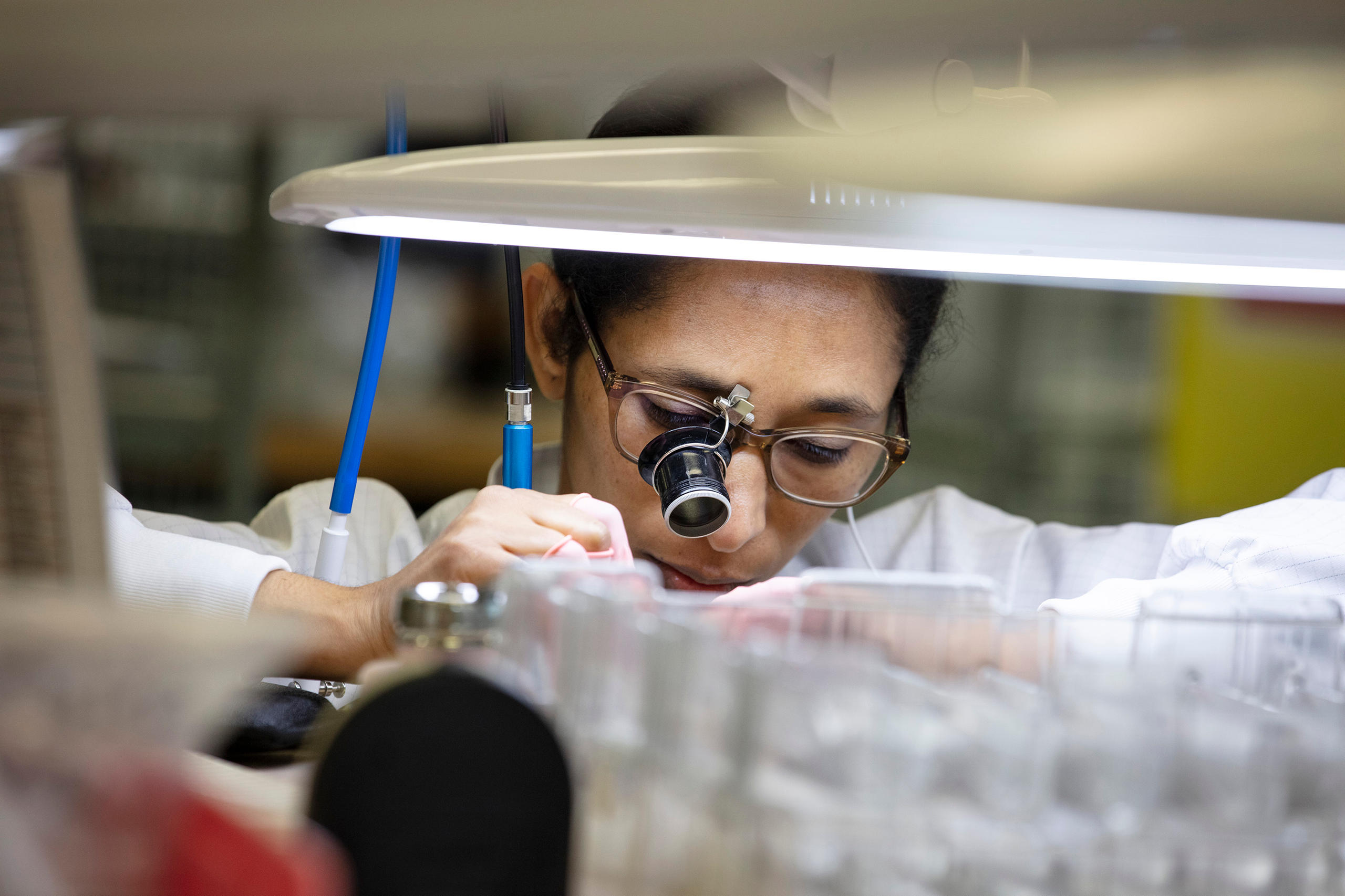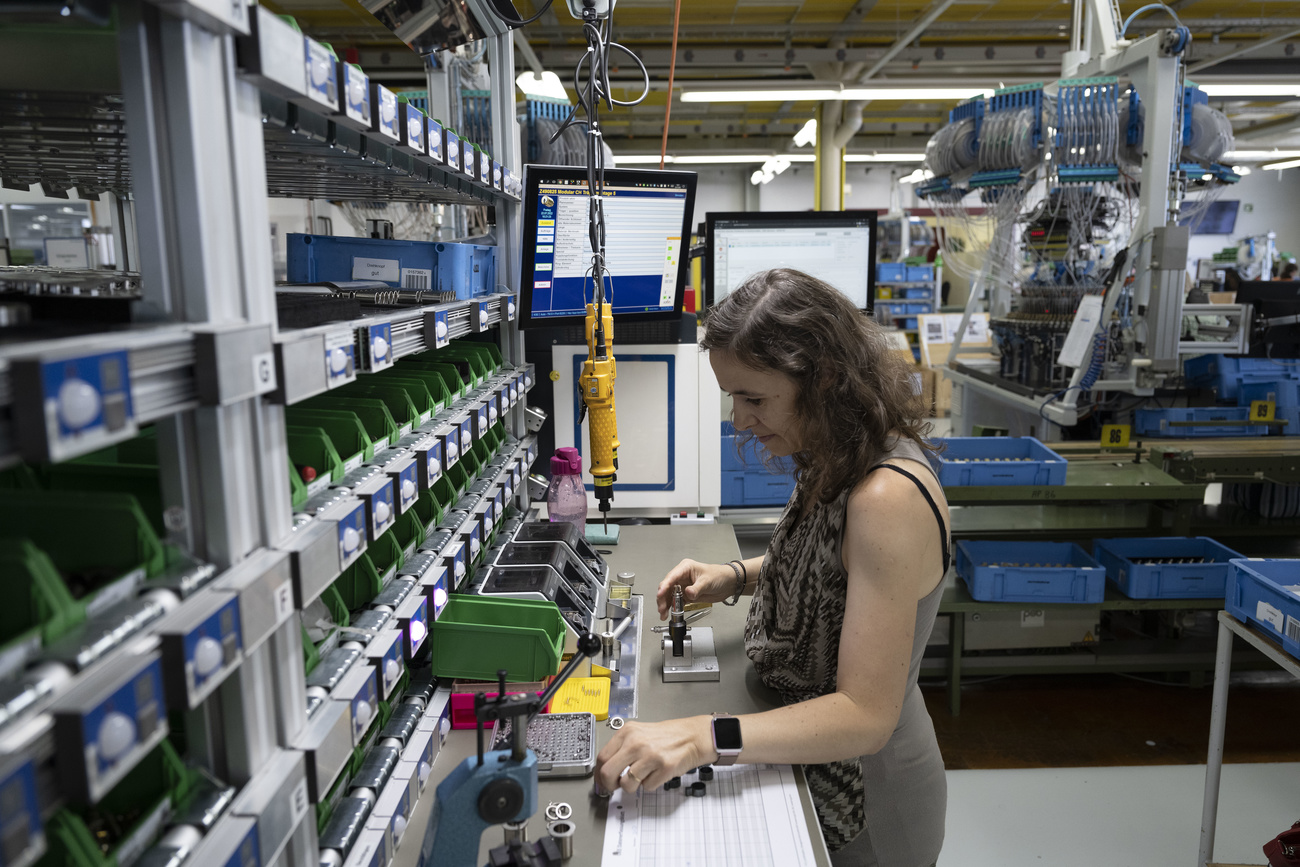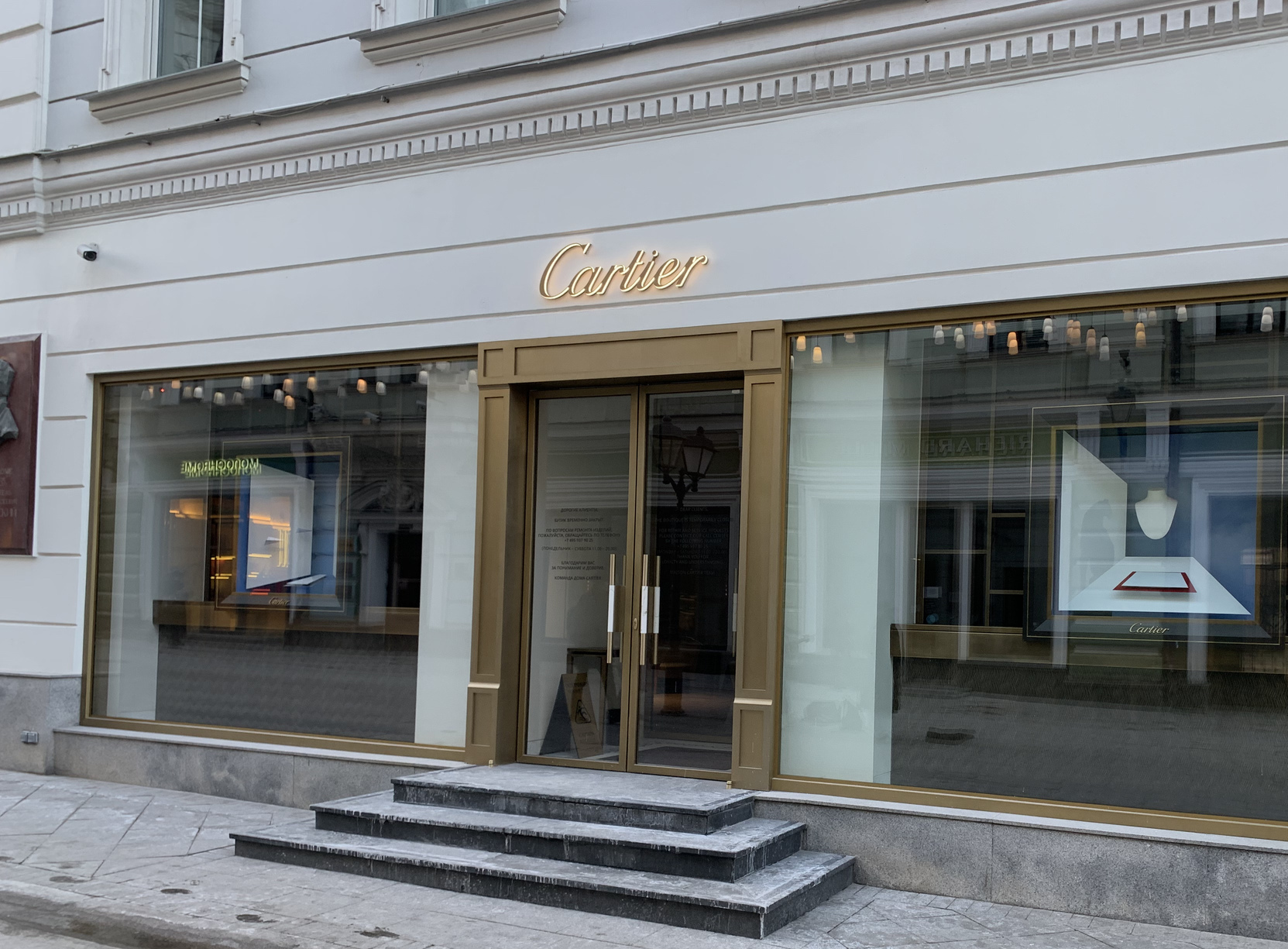
Looking ahead: Switzerland’s economic outlook for 2023

Sluggish growth, multinationals under pressure, tourism slowly on the mend, luxury industry on a high: SWI swissinfo.ch’s economic journalists take a look at some of the main developments in store for the Swiss economy in 2023.
1) Slowdown in growth
The tense energy situation and rising prices weigh heavily on economic forecasts for 2023. The State Secretariat for Economic Affairs (SECO) predicts a growth rate of 0.7% next year, down from 2.1% in 2022. Thanks to sound domestic consumption, however, the risk of recession remains low.
In terms of inflation, the Swiss National Bank (SNB) forecasts a rate of 2.4% for 2023, compared to 2.9% in 2022. However, forecasts vary greatly from one institution to the next: while the Swiss business umbrella association Economiesuisse expects inflation to remain high next year (2.9%), Credit Suisse experts are much more optimistic (1.5%).
The economic slowdown is likely to trigger a slight rise in unemployment, which SECO expects to reach 2.3% in 2023. The labour market will nonetheless remain extremely tight in several industries. Competition for qualified staff in the health, IT and engineering sectors will undoubtedly continue next year.

More
Growth forecasts for Switzerland lowered further
2) Financial sector caught in a vice
The financial sector is facing up to a potentially difficult 2023 in the face a rapidly evolving and unfavourable economic and geopolitical landscape.
Wealth and asset managers must figure out how to preserve clients’ money and achieve returns with both equities and the bond markets being squeezed between poor economic growth and rising interest rates.
The stock market boom of 2021 fizzled out when Russia invaded Ukraine and the only potential silver lining to the darkening clouds is the hope that China will reopen its markets following a protracted Covid lockdown.
The volume of assets managed by Swiss banks shrank 4.4% in the first half of 2022 from a high of CHF8.8 trillion ($9.4 trillion) at the end of 2021. Banks will continue on the defensive next year to stop that rot with their clients losing appetite for risk.
Credit Suisse will spend the coming months plotting a course to stability as it sheds 9,000 jobs and large parts of its investment banking business.
Switzerland’s second largest bank is hoping that 2023 will be the ‘Year of the Turnaround’ that can move its share price out of the basement. Any further legal or reputational problems could inflict a major dent in that ambition.
The alternative cryptocurrency financial system, in which Switzerland hopes to play a leading role, is in the midst of a crisis following the collapse of the FTX crypto exchange and its associated investment vehicle Alameda.
Fortunately, the scandal had no roots in Switzerland, and the ‘Crypto Nation’ believes it can now offer a more stable, better regulated environment to nurture the future development of blockchain finance.
The deepening energy crisis and greenwashing actions taken by regulators against banks in some countries have put the brakes on sustainable finance growth.
But the Swiss financial centre still harbours ambitions of being a leading venue for the funding of sustainable development goals.

More
Can Switzerland benefit from the FTX crypto crash?
3) Tourism industry still not back to normal
In 2023, overnight hotel stays should return to 95% of their 2019 level, according to Switzerland Tourism, the national office representing the sector. Bookings by Swiss guests will be 8% higher than before the Covid-19 crisis, which has hit the industry hard over the past three years. However, the increase in domestic tourists will not fully make up for the dearth of visitors from abroad.
Overall, a full rebound for tourism should not be expected until 2026. It will take time for tourists from distant markets to return to Switzerland in the same numbers, whereas a return to 2019 levels is expected for European tourists by 2025.
Switzerland’s main drawback as a tourist destination is “perhaps its prices, but this drawback has existed for a long time,” Switzerland Tourism spokeswoman Véronique Kanel recently told Swiss public radio RTS. “It is not new that Switzerland is an expensive, high-end destination. In the current context, we are still relying on tourists who have strong purchasing power and who will not really be influenced by inflation in their country.”

More
Winter energy woes cast shadow over Swiss ski season
4) Machine industry bracing for hard times
Clouds are gathering on the horizon for the machine, electrical engineering and metals (MEM) industry, which employs around 320,000 people in Switzerland.
After a strong start to the year – exports jumped 9% in the first six months of 2022 – the industry experienced a major trend reversal at the end of the year, particularly in Germany, which accounts for nearly a quarter of the sector’s exports.
One third of the members surveyed by the industry umbrella body Swissmem are expecting a drop in incoming orders over the next 12 months, compared to 13% one year ago.
Inflation, energy-supply uncertainties and the strong Swiss franc are jeopardizing the sector’s prospects. “We must prepare for hard times,” said Swissmem Director Stefan Brupbacher, in a statementExternal link issued in mid-November.

More
Why the strong franc no longer scares Swiss businesses
5) Watchmaking set for growth
It is a different story completely for the watchmaking industry, which has been on a roll for the past two years. The post-pandemic recovery has spawned a string of record years for this flagship of Swiss industry: watch exports reached CHF22.3 billion ($24 billion) in 2021 and should pass the CHF24 billion mark in 2022.
“Despite inflation, geopolitical uncertainties and high energy costs, we are confident,” Jean-Daniel Pasche, President of the Federation of the Swiss Watch Industry FH, recently told the daily Bieler Tagblatt.
Luxury watches have become highly prized investment objects the world over. Some models from the most prestigious brands sell for exorbitant prices on the secondary market.
And there is no sign that the bubble will burst any time soon: with over ten million recorded millionaires on the planet, there are still fewer “Swiss-made” luxury watches produced each year than people who can afford them.
Prospects are also rosy for the manufacturers of entry-level timepieces. After a steady decline over the past 20 years, the number of watches sold for less than CHF500 each has now returned to an even keel.
This is due, in particular, to the launch of the “Moonswatch”, an affordable version (around CHF250) of Omega’s Speedmaster Moonswatch marketed by Swatch since this spring. Specialists expect Swatch to sell more than one million of its ceramic models next year.

More
The end of an era: Russia after Swiss watchmakers said goodbye
6) Multinational companies in the ESG crosshairs
Amid a growing backlash against so-called ESG (environmental, social, and governance issues), multinational companies will be under more pressure than ever to fend off accusations of greenwashing.
In 2023, the largest companies in Switzerland will publish the first reports in response to a new law on responsible business that many corporate watchdogs say doesn’t go far enough to rein in corporate abuse of human rights and the environment. The European Union is expected to move forward with its own legislation on responsible supply chains that could make the Swiss law irrelevant.
Companies will continue to be on the defensive over decisions to operate in countries such as Russia and China where politics and values are clashing with business priorities. While many Swiss companies pulled out of Russia after it attacked Ukraine, some, particularly in the commodities sector, are finding it more difficult to untangle ties with Russia.

More
Swiss companies ‘trapped’ in Russia
7) Swiss pharma balances innovation and its cost
The Swiss pharmaceutical sector, considered one of the most innovative in the world, will confront growing questions about the price tags for many new therapies, especially for cancer, and how health systems, already drained from the pandemic, will pay for them.
Politicians aren’t just under pressure over high prices though. As Switzerland’s largest export sector, the pharma and biotech industry hopes 2023 ushers in agreements between Switzerland and the European Union after more than a year of back and forth.
Key issues to resolve include the free movement of people and scientific collaborations such as Horizon Europe, both of which are critical to Switzerland maintaining its position as a pharma hub.
One area where both politicians and industry agree is the need to bring manufacturing closer to home after another year of supply chain woes and worsening medicine shortages. Swiss firms like Bachem, that supply the pharma industry with key ingredients and technologies, are expected to become more important.

More
Companies invest more money in R&D in Switzerland
Text edited by Reto Gysi
Translated from French by Julia Bassam

In compliance with the JTI standards
More: SWI swissinfo.ch certified by the Journalism Trust Initiative

















![The four-metre-long painting "Sonntag der Bergbauern" [Sunday of the Mountain Farmers, 1923-24/26] had to be removed by a crane from the German Chancellery in Berlin for the exhibition in Bern.](https://www.swissinfo.ch/content/wp-content/uploads/sites/13/2025/12/01_Pressebild_KirchnerxKirchner.jpg?ver=a45b19f3)











You can find an overview of ongoing debates with our journalists here . Please join us!
If you want to start a conversation about a topic raised in this article or want to report factual errors, email us at english@swissinfo.ch.